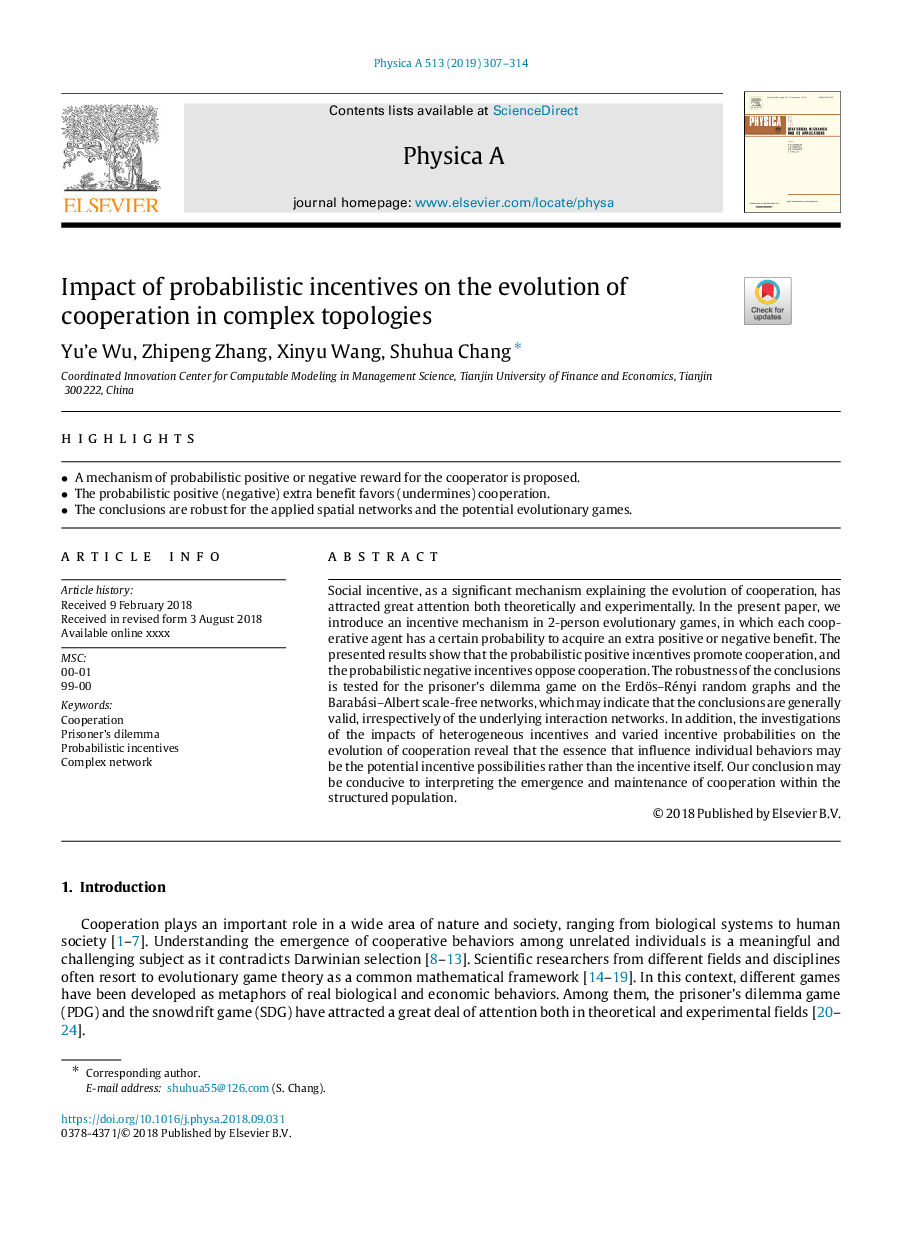| Article ID | Journal | Published Year | Pages | File Type |
|---|---|---|---|---|
| 10140571 | Physica A: Statistical Mechanics and its Applications | 2019 | 8 Pages |
Abstract
Social incentive, as a significant mechanism explaining the evolution of cooperation, has attracted great attention both theoretically and experimentally. In the present paper, we introduce an incentive mechanism in 2-person evolutionary games, in which each cooperative agent has a certain probability to acquire an extra positive or negative benefit. The presented results show that the probabilistic positive incentives promote cooperation, and the probabilistic negative incentives oppose cooperation. The robustness of the conclusions is tested for the prisoner's dilemma game on the Erdös-Rényi random graphs and the Barabási-Albert scale-free networks, which may indicate that the conclusions are generally valid, irrespectively of the underlying interaction networks. In addition, the investigations of the impacts of heterogeneous incentives and varied incentive probabilities on the evolution of cooperation reveal that the essence that influence individual behaviors may be the potential incentive possibilities rather than the incentive itself. Our conclusion may be conducive to interpreting the emergence and maintenance of cooperation within the structured population.
Related Topics
Physical Sciences and Engineering
Mathematics
Mathematical Physics
Authors
Yu'e Wu, Zhipeng Zhang, Xinyu Wang, Shuhua Chang,
